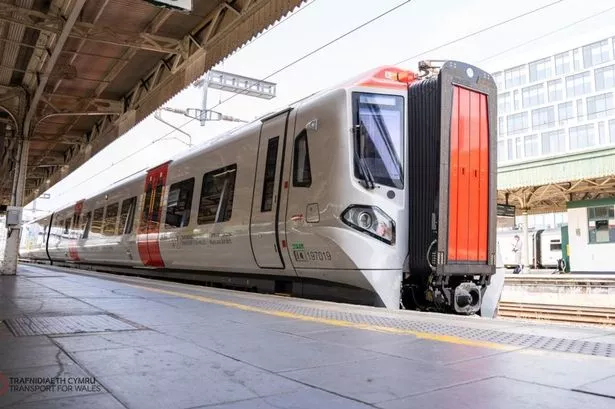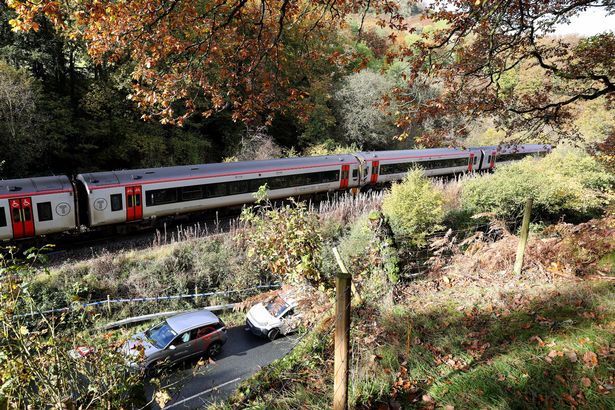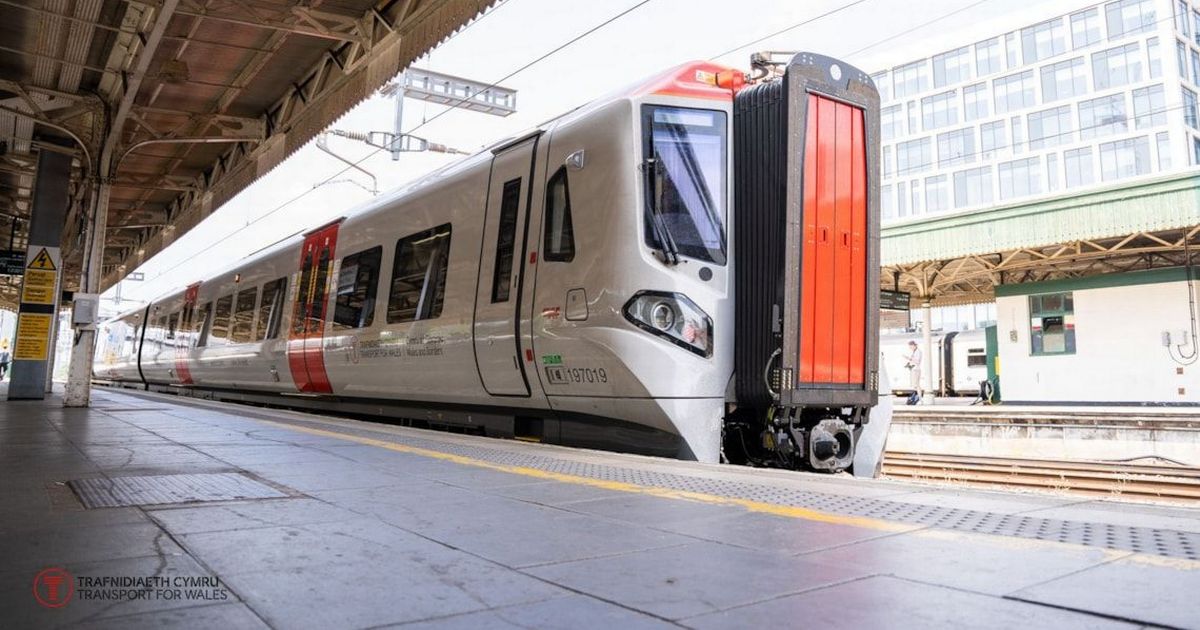TfW’s annual report looks at a number of risks including extreme weather and climate change. It also shows passenger journeys and income from ticket sales are up.
21:00, 24 Jul 2025Updated 21:20, 24 Jul 2025
 TfW saw a 19.1% rise in passenger journeys this year and income from ticket sales rose from £148m to £174m a 17.8% increase. But extreme weather is a risk going forward.
TfW saw a 19.1% rise in passenger journeys this year and income from ticket sales rose from £148m to £174m a 17.8% increase. But extreme weather is a risk going forward.
Passenger journeys and ticket sales income are up on Transport for Wales but there are risks ahead, including effects of climate change and extreme weather. Severe weather can cost Transport for Wales up to £500,000 a day, the operator has revealed in its annual report.
It says depending on the level of disruption, the cost impact can range from £100,000 to half a million pounds a day. The 2024-25 report looks at a number areas including risks the operator faces in the coming months and future.
Climate is detailed as a “principal risk” to the not for profit organisation, primarily because of the risk of disruption due to an increase in extreme weather events.
“The impact of extreme weather Storms Ashley, Bert, Darragh and Éowyn all impacted our ability to run rail and bus services,” the document says, “We’re working to develop ways to improve our resilience to extreme weather including contracting rail replacement services, working closer with Network Rail and improving the immediacy of our reporting services.”
 The report references the rail accident in Mid Wales (pictured) as well as the effect of extreme weather on services due to Storms Ashley, Bert, Darragh and Éowyn.(Image: Ian Cooper/PA Wire)
The report references the rail accident in Mid Wales (pictured) as well as the effect of extreme weather on services due to Storms Ashley, Bert, Darragh and Éowyn.(Image: Ian Cooper/PA Wire)
TfW, a not for profit organisation wholly owned by the Welsh Government, says it is forward planning for more such extreme weather with climate-related risks and adaptation costs being integrated into long-term financial planning. Sign up for our free daily briefing on the biggest issues facing the nation sign up to the Wales Matters newsletter here
There is also a risk bus franchising in Wales will not be delivered as promised due to a lack of money and resources, its report says.
The Welsh Government has announced plans for major changes to bus services in Wales but in the section of the report where risks to TfW are detailed, one reads: “Risk of TfW not achieving bus franchising and the wider bus policy aspirations and outcomes in Wales”.
It says that over the next six months, the risks are threefold:
- If the legislation to enable change of franchising model is not made law
- Insufficient funding to enable change and meet expected service delivery
- Lack of resources and capability to deliver programme.
Other risks include the Core Valley Lines transformation taking longer than expected, costing more, and “that the system is not properly integrated”. The Core Valley Lines are run by TfW, but the Wales and Borders line remains under Network Rail control.
The 107-page report also shows that chief executive James Price received a salary of between £240,000 and £245,000 in 2024-25, up from £230,000 to £235,000 the year before. Finance director Heather Clash was paid between £175,000 and £180,000, up from £160,000 to £165,000 a year.
While no benefits in kind or bonuses were paid to TfW board members, the report says more than £1m was paid in performance related pay across the group.
Transport for Wales made a loss of £32m for the year but took money from its reserves to cover that. The total expenses for the year were £827m up from £741m last year.
“This growth is driven by staffing increases, depreciation and other costs related to new rail rolling stock and increased services, alongside increased maintenance and depreciation costs resulting from the Core Valley Lines network enhancements,” the report says.
The report shows Transport for Wales received £920m in Welsh Government funding, and spent £1138m. It made £214m from passengers and non-Welsh Government revenue.
There was a 19.1% rise in passenger journeys this year and income from ticket sales rose from £148m to £174m a 17.8% increase. Customers travelling First Class increased by a third last year, with a corresponding rise of more than a third in First Class revenue
The operator says the number of people making journeys under 20 miles has “increased substantially” and more people are travelling on Sundays.
While the operator has cut services on the Cambrian and Heart of Wales line, it says there have been a third more station stops than last year due to timetable changes.
In terms of reliability it says reliability on the Wales and Cross Borders line is better, up five percentage points to 75% of services running on time, and on Core Valley Lines, 85.7% of services run on time.
It admits people on the Coryton line “received poor service”.
The report references the rail accident at Talerddig as well as the effect of extreme weather on services due to Storms Ashley, Bert, Darragh and Éowyn.
In his introduction to the report Chief Executive James Price says: “This year has brought challenges. In the autumn, major storms meant TfW closed railway lines and halted buses. In October 2024, two trains collided at Talerddig.
“This was a tragic incident and I extend my deepest sympathies to the affected customers, colleagues and their families. We continue to work closely with our partners in Network Rail and others to the improve the resilience of our network overall.”
Outgoing chair of TfW Scott Waddington writes that how well the operator can respond when things go wrong “remains one of the most immediate ways to judge performance”. He says “going forward lessons must be swiftly learnt and resilience will be paramount”.
Commenting as the report was published he added: “As I come to the end of my seven years as chair of TfW, it is timely to reflect on the enormous progress I have witnessed during my tenure. The people of Wales are now seeing the benefits of our hard work.
“TfW has continually grown and evolved as an organisation and our investment into the public transport network is now very visible and is helping improve people’s lives in Wales bringing social, economic and environmental benefits.
“Brand-new trains, buses and electrified services are now here in Wales and next year we’ll see the introduction of tram-trains to our public transport network.
Key takes from TfW 2024-25 annual report include:
- 31.7 million train journeys made by customers – up a fifth from last year
- 17.8% increase in rail revenue to £174.8 million
- 77.1% of journeys made on new trains as of 24 May 2025
- 1.2 million journeys on TrawsCymru bus contracts that TfW run – 11.4% increase on last year
- £47 million of Active Travel funding distributed
- Electrification of the Treherbert, Aberdare and Merthyr lines has been completed this year, with new trains now providing an improved service to customers
- In November (2024) TfW became the first heavy rail train operator outside of London and the South East of England to introduce a new Pay As You Go system at 95 stations throughout South Wales. Within the first three months of this being introduced more than 150,000 journeys were made using pay as you go
